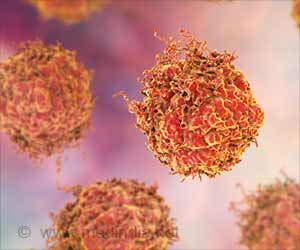Synchronous colorectal cancers are two primary tumors that originate and develop independently in around two to five percent of colorectal cancer cases.

‘Patients with synchronous colorectal cancer have a higher occurrence of inherited damaging mutations in immune-related genes.
’





The study, led by researchers from King's College London, investigated whether the synchronous tumors had the same or different mutations and what genetic alterations could be predisposing people to develop more than one colorectal tumor. They analyzed 20 synchronous colorectal cancers from 10 patients and compared their genetics to people with only one colorectal cancer and to healthy people. The genetic analysis found the synchronous tumors were not related to each other -- they contained a variety of different genetic mutations that had led to cancer. This genetic variation makes synchronous colorectal cancers more difficult to treat because therapies targeted at specific genetic aberrations in a person's cancer may not work if the other tumor has different genetic mutations.
Researchers also found synchronous colorectal cancer patients had a higher occurrence of inherited damaging mutations in immune-related genes. Three-quarters of synchronous colorectal cancer patients were found to have rare damaging mutations in genes related to immune system function.
These patients had differences in the composition of their gut immune cells, which could lead to inflammation in the gut. The study authors conclude that synchronous colorectal cancer patients have inherited damaging alterations of immune-related genes, which may cause an inflammatory environment in the gut and increase the frequency of independent cancer-initiating events.
Dr Francesca Ciccarelli, senior author from the Division of Cancer Studies at King's College London, said: 'Between two and five per cent of all bowel cancer patients develops more than one primary tumor, called synchronous tumors. Prior to this study, it was unclear whether these multiple tumors started because of the same faulty genes. Now we know that these tumors are as different as cancers from two different people and patients inherit mutations in genes of the immune system that potentially have a damaging effect. These mutations are usually very rare in healthy people, but they occur at a much higher frequency in this patient group.
Advertisement
'We still do not know whether the damaging mutations in immune system genes of these patients have a direct effect on the composition of the gut immune cells. To unravel this aspect, we will do further studies to profile the gene expression pattern of these cells and, in case we find differences with healthy people; this can be used as a biomarker to predict the development of synchronous tumors.'
The study published in Nature Communications.
Source-Eurekalert













